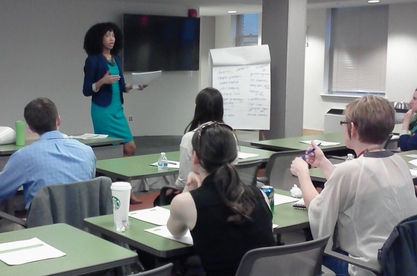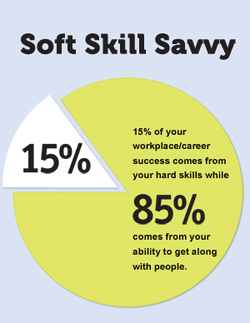|
Spend enough time writing and thinking about education policy and it’s easy to forget that policymaking is just as dependent on what doesn’t get discussed as what does. But if we step back from the conversation and think about what we should talk about, rather that what we should think about the things we’re already talking about, the shortcomings of our current discussion become a bit clearer. Here are three important ways to refocus the ed reform conversation now:
3 Comments
 Credit: Katrina Stevens Credit: Katrina Stevens At many schools, teachers struggle to work with and supplement the few (and sometimes poorly functioning) technology resources they are given; at others, students and teachers have the opportunity to learn hands-on through iPads and Promethean boards. Beyond differences in infrastructure, teachers are sometimes hesitant, unsure, or nervous about adopting new technologies. But it is getting hard to ignore the allure of new hardware and software designed to improve student learning and the teaching profession. As teachers work at their own pace to incorporate innovative instructional tools, the growing influence of the ed tech movement is becoming undeniable. Katrina Stevens was one of those hesitant teachers. She continued to use outdated technologies and tools in her classroom because she was unaware of the benefits newer innovations could bring. It wasn’t until she was trying to find resources for students in an overseas school that she began to learn how powerful and transformative the use of technology in instruction could be. She has been an advocate ever since. Stevens, an English teacher and administrator for more than 20 years, was recruited to be a full-time writer for EdSurge after her own education blog was discovered. She has become a powerful voice in the ed tech world, a champion for women in the field, and an advocate for schools and children. Through her many endeavors, including founding #edtechchat, co-chairing #edtechmd, and running a monthly women’s founders group, Katrina encourages dialogue about schools and individuals making strides in the ed tech movement and why those opportunities should be equally available to everyone.  Kandace Jones talks about managing stress. (Credit: Francesca Duffy) Kandace Jones talks about managing stress. (Credit: Francesca Duffy) Intolerant bosses. Inefficient emails. Non-collaborative colleagues. Numerous meetings. Stressed yet? These are just a few work-related descriptors that a room full of education professionals listed as daily disruptions to their peace of mind. They were in a YEP-DC-sponsored workshop last week on maintaining inner peace by reducing stress at work, which was led by Kandace Jones, a life coach who offers these types of seminars for young professionals in the D.C. area. Jones shared her personal struggle with work stress, her dive into (and out of) depression, and how others with similar work environments can lead happier and more balanced fulfilling lives.  Credit: cccfs.com Credit: cccfs.com The term “soft skills” has been thrown around a lot in education lately, but if you ask someone what “soft skills” mean, you’re likely to get just about as many answers as people you ask — and they’re more likely to refer to technical skills, like typing or other computer abilities. But as industry surveys often show, employers’ highest priorities are not these types of technical skills, but life skills (think: collaboration, initiative, critical thinking, problem-solving, and organization). Knowing that serious career and life preparation requires a commitment to soft skills in our schools, teachers must begin to take the lead by observing, teaching, and assessing soft skills in the classroom. The first thing teachers can do is take an active role in monitoring, noting, and informing students of their soft skill strengths and weaknesses. In Britain, students ages 16 or older who drop out of school or college are called NEET (Not in Education, Employment, or Training). More than 16 percent of 16- and 17-year-olds in the country fall into this category. But a national charity, more than a decade in the making, is starting to change that. |
aboutYEP-DC is a nonpartisan group of education professionals who work in research, policy, and practice – and even outside of education. The views expressed here are only those of the attributed author, not YEP-DC. This blog aims to provide a forum for our group’s varied opinions. It also serves as an opportunity for many more professionals in DC and beyond to participate in the ongoing education conversation. We hope you chime in, but we ask that you do so in a considerate, respectful manner. We reserve the right to modify or delete any content or comments. For any more information or for an opportunity to blog, contact us via one of the methods below. BloggersMONICA GRAY is co-founder & president of DreamWakers, an edtech nonprofit. She writes on education innovation and poverty. Archives
May 2017
Categories
All
|
| Search this site |
© Young Education Professionals. All rights reserved.
Logo designed by Aram Designs
Website created using Weebly
Logo designed by Aram Designs
Website created using Weebly

 RSS Feed
RSS Feed